How I Stopped Being Gay
Happy Pride, everyone
Dear friends,
Remember when Pride was a day? Now it’s a full month, and now that that month is over, I apologize for stretching it into another. But I wanted to share this essay I have just published in The Nation. It’s part of a longer book I am writing about the Americans of my generation, the generation of everything-getting-better, that already feels as stranded as a Stegasaurus.
Yours,
B.
Through some chemical quirk, I was born gay. Though inborn, this characteristic did not appear at birth. Sexuality is like height rather than eye color: I was born with blue eyes, but my height and sexuality did not reveal themselves immediately. I was meant to be tall, and meant to be attracted to other boys; but when I was a child, I was no more gay than I was tall. Since children of my generation were assumed to be heterosexual, you had to challenge the assumption—become gay in the eyes of others—and it was not until I told people, in late adolescence (around the same time I became tall), that others began to perceive me as a member of a minority.
For most of the first two decades of my life, I had not, therefore, been seen as a member of a minority. In a way this was lucky, since this was not a group anyone in my generation was rushing to join. Membership, for many people, was dangerous. For young people, it could mean being subjected to bullying, or being kicked out of your house, or being subjected to abusive “therapies.” For adults, it could mean workplace and housing discrimination, as well as other associated risks: depression, drug abuse, suicide.
I was lucky not to have these problems. Growing up gay was terrible for many, but for some reason—another roll of the dice—I was spared the misery many experienced. It’s true that my parents were anything but bigots. (But plenty of people with families like mine were scarred by the experience.) I never had problems at school; the tall gene surely helped in this sense. (But I have known others who were not bullied and who nevertheless had a difficult time.) I didn’t even have a lachrymose coming-out story. The minute I got to college, I made sure everyone knew, and that was that.
And in 1994, gayness was considered far less novel than it had been even a few years before. There was still no lack of haters, but in the social and educational world that I was brought up in, people had gotten the memo that it was no longer cool to say derogatory things about homosexuals. Old attitudes persisted, of course. But the old language used to express them was on its way out, and those who hated homosexuals knew to say “religious freedom” or “family values” instead of plain old “faggot.”
Even before I graduated from high school, I had seen the radical change in attitudes toward homosexuals. My earliest memories of gay people came from watching a neighborhood. Montrose was developed just west of downtown Houston in the 1910s. Unlike my own, more homogeneous community, inhabited by people like my parents—straight white professionals with a couple of kids—Montrose was what we would later call “diverse.” Ratty apartment complexes stood alongside old mansions. Most houses were brick bungalows. The people who lived in them were often referred to as “artistic”—a word which, I later figured out, meant gay. Montrose was seedy; the houses were cheap; and it had tattoo parlors and “adult bookstores,” which I later figured out were different from bookstores for adults. Long before I ever set foot in a bar, I knew that Montrose was where the bars were.
And then, in the middle of the ’80s, when I was 9 or 10, weeds and for-sale signs sprouted on the lawns of Montrose. The quirky shops closed; the neighborhood emptied out. Its inhabitants were dying off, one by one, in a mass-death event that, at least at first, went largely unseen by society at large—which was to say by heterosexual society. A neighborhood that had been associated with dodgy fun was starting to disappear. And the people who were dying were people like me.
When I was a child, I knew only one person who died of AIDS. His name was John; his sister was a friend of my mother’s. I saw him just once, when he came to our house in the hills between Houston and Austin. I can see him now. He had a mustache, and sat on some puffy Edwardian chairs my mother later reupholstered. That’s how I know I was very young, since the house was renovated when I was in third grade, and everything slightly shopworn, including those chairs, got a fresh lease on life.
John’s death was presented as something of a mystery. He had, my mother explained, been “celibate” for several years. This was the first time I encountered that word, and she told me what it meant. I understood that celibacy made his death seem like a fluke—bad luck—like dying of lung cancer decades after you quit smoking. The implication was that gay sex was like cigarettes, something that could kill you. I don’t recall John’s name ever coming up again, but AIDS turned a previously unspeakable mystery into a constant topic of conversation.
I remember only two articles I read in childhood that featured gay protagonists who were not dying. One was about a man named Terry. His mother asked if he was gay; he had to admit he was; she wept. The second was about gay life at Rice University, a few minutes from our house. A student named Alex said that he and his straight girlfriends checked out guys’ butts. Rated them. John’s story equated gayness with death. Terry’s equated it with shame, with horrifying your parents. Alex’s—well, I must have remembered it because it was such a thrill. A guy only a little bit older—right down the street—checking out other guys. That was extremely exciting—all the more so because there was a picture of Alex, and he was cute. I, too, wanted nothing more than to look at men. But the message that looking at other guys was dangerous was everywhere. The thing you wanted more than anything else was also the most forbidden. This prohibition destroyed many people. It could get you killed; it could force you to live in hiding and shame.
I, on the other hand, discovered a perversion in my character. This wasn’t my sexual orientation. I don’t know where I found the self-confidence to know that any difficulties I was experiencing on that front were temporary. I always knew that, like Alex, I would eventually go to college. And I started to like being gay because it seemed like a way off the ladder of “achievement” followed by consumption—an opportunity to do something different with my life. It allowed me to inhabit a vast zone of privacy, a place nobody else could enter. The perversion was that the secrecy turned me on. This was distinct from being turned on by men. I enjoyed being part of a minority that nobody knew I belonged to. Knowing that nobody knew made me naughty. It gave me a glint in my eye.
Where the boys were: The Lobo’s Houston store was a gay oasis, pictured here with owner Larry Lingle (right) and his partner, Bill White. (Left: Courtesy of JD Doyle, HoustonLGBTHistory.org)
I had seen magazines with naked women, furtive glimpses of someone’s dad’s Playboy, but it wasn’t until high school that I saw magazines with naked men. I’m not sure how I found out about a bookshop in Montrose called Lobo. Alongside a wide selection of respectable gay and lesbian literature—“respectable” was a relative term, since at that time even the most polite gay literature was considered little better than pornography—it sold real porn.
It’s hard to explain what an event this bookstore was for me—and for others, too. “It’s an act of liberation, and an act of liberation that we at the turn of the century take for granted,” an activist, Gene Harrington, said in a 1999 article from OutSmart, now archived on a website, Houston LGBT History, that preserves the memories of such places. They were “our only source of gay and lesbian literature. If you wanted a book by a gay author or on a gay issue, you either went to a store like Lobo, or you didn’t get it.”
Founded in Dallas in 1973 by a man named Larry Lingle, who was married to a woman for eight years and who only came out at age 37, Lobo opened in Houston in 1986. An article from This Week in Texas in 1987 shows just how subversive a gay bookstore was around the time I was coming to identify with that minority. When I was 11, the vice squad raided the Dallas branch and arrested Lingle for a “class B misdemeanor for possession of sexual materials, namely dildos.” In 1973, Texas had passed a statute forbidding the sale of “obscene devices…including a dildo or artificial vagina.” (This law is apparently still on the books.)
“We aren’t worried about guns in Texas,” Lingle is quoted as saying, “but you can’t sell a concealed dildo.” Fourteen months of legal maneuvers followed, and the next year, he and his partner, Bill White, moved to Houston. White died of AIDS in 1995. He was 39. Lingle’s life, and the bookstore’s, shared features with other gay institutions of that time. There was police harassment, death by AIDS, and then—just after the business had finally become socially acceptable—death by Internet.
But when I was in high school, Lobo loomed fascinatingly. “A lot of people come to the door of the bookstore and don’t even come in,” Lingle said in the OutSmart article. I knew the feeling: I had never felt so bold walking into a store. I knew that walking in meant walking into something from which I could never again walk out. Once inside, I ought to have gravitated to works of gay literature. But being a teenage boy, I gravitated toward the porn instead. No straight person can understand the thrill of a gay boy’s first encounter with a magazine made for boys like him. Has anybody ever properly sung the praises of the gay pornographers?
Favorite son: Just as the author (pictured above) entered college, homosexuals seemed to shift from outcasts to interest group. (Courtesy of Benjamin Moser)
If I were to try, I would start by saying that gay porn is entirely different from straight porn. It’s not even a close cousin. To use the same word implies an equation, implies that they were the same. They were not the same. There should have been another word for it.
Boys of my generation—of every generation before mine—were assumed to be interested in girls. There were limits to how this interest could be expressed, which depended on region and religion, and which changed as we grew. The ways 7-year-old boys were meant to interact with girls was different from the ways 16-year-olds could, and the role of teachers and parents was, in large part, to teach us to express this interest appropriately. At the same time, we were aggressively discouraged from looking at boys. The ridicule that surrounded homosexuality, the aura of weakness and inferiority and perversity and disease, was often more powerful than the outright violence that, we understood, awaited anyone who didn’t get the message.
That message arrived long before we quite understood what it was about. Long before boys had any idea what sex or sexuality was, other children understood that there was something different about certain boys, and often bullied them. Long before we knew which sexual interests were acceptable, or even what sexual interests were, we knew not to look at other boys. Later, realizing that we were the intended recipients of this unspoken message, we trained ourselves to avert our eyes. This required unrelenting vigilance. Wanting to look at other boys was the most natural, and most forbidden, thing in the world. Eyes could betray us, endanger us.
(How do you recognize gay men? To this day, I can spot them by their eyes.)
Heterosexual couplings, romanticized and celebrated, were the plot of every book, every movie. And so, although I was lucky to be spared outright prejudice, bullying, or rejection, I shared with every other gay boy that knowledge that I wasn’t supposed to look. The cops that were always on duty in the outside world were on duty inside of me, too. If I was going to keep my secret, I needed to be unrelentingly vigilant. It helped that, when I was growing up, any images of men that were even slightly sexually suggestive appeared in a heterosexual frame. When we grew a bit more sophisticated, when we learned a bit more about how to look at them, we saw that, despite this frame, many of these images were—actually, secretly—intended for us. A magazine called Playgirl preserved the frame even in its title.
The abundance of porn on the Internet soon made publications like Advocate Men seem quaint.
Gay porn’s contribution was to strip away the frame. I don’t think a naked woman could ever look as good to a straight man as those guys looked to us. Here, at last, were men who didn’t want me to look away; who, instead, had done everything possible to get me to look. They had put incredible effort into making themselves as attractive as possible. They had spent years working out. Some had left the hair on their faces or bodies; some had removed it. Great care had gone into lighting them, dressing them, styling them, photographing them, so we could see everything they had to show. These were not men for women. These, finally, were men for us. Their appeal was not akin to pictures of women for straight boys, merely sexual. It was existential.
These men’s appeal was their invitation to look. Check us out. Take all the time you want, they said, knowing this was what we wanted most. They were looking at us, daring us to look back; and though their bodies were undeniably attractive, the real appeal was their eyes. In almost every one of the gay sex stories I devoured as a teenager, the plot hinged on the eyes. Two men were walking past each other; a glance gave something away. “What are you looking at?” an unattainable jock said to a boy caught peeping. I knew about wanting to look a slight split second longer—and forcing myself to look away. I knew what it was like to wonder about every guy I met: friend or foe? In gay porn, there was always a happy ending.
A different light: A portrait of the author as a young man: “The secrecy turned me on.” (Courtesy of Benjamin Moser)
In the outside world, there were starting to be more images of gay men. In 1992, when I was 16, I saw Les Nuits Fauves, a French movie by a director named Cyril Collard. It included some sex scenes; I don’t remember how explicit they were, but in a world in which such images were almost entirely absent, they were there, among the first I had ever seen. The next year came Philadelphia, starring the heterosexual actor Tom Hanks, whose “courage” in portraying a gay man was often praised as an indication that times were changing; for a straight man to play a gay man would once have meant career suicide. Hanks’s character died of AIDS—and so, a few months after Les Nuits Fauves was released, did Collard. Now we were allowed to see a few gay men—but only with the assurance that, in the movie and even in real life, they would die at the end.
There were no such deaths in gay porn. There were no high school bullies. There was no AIDS and no vice squad, no Republicans and no religious right, nobody’s hateful family kicking them out, nobody getting arrested for the possession of dildos. It was a paradise exclusively inhabited by attractive men fucking as many other hot men as they wanted—and living happily ever after. It was a bright vision of an alternative future. And from the time I discovered these magazines, I understood clearly that—marginal as they were, invisible as they were to heterosexuals, and even to the many gay people who had no access to them—the right wing was correct to worry.
What was the threat that led the cops to bust down the door of a place like Lobo? To grow up gay in the era of Ronald Reagan and George H.W. Bush was to understand that the GOP’s attacks on “obscenity,” their obnoxious jokes about AIDS, their efforts to regulate women’s sexual activity through restrictions on abortion and birth control, were not merely a footnote, as their supporters in neighborhoods like mine told themselves. These people were “fiscal conservatives” or “tough on crime” but saw nothing wrong with contraception or dirty movies. In the posh enclaves of Houston and many similar places, Republican voters viewed these policies as unsavory compromises inevitable in politics.
But to be gay was to understand that certain people had decided that to look at other men was to subvert the state. Looking at men was incompatible with the culture I was being groomed to inherit. To do so openly meant to relinquish whatever role I had been assigned by birth and education. The empire may not yet have realized that I was a subversive, but it knew about my kind. It knew that we were dangerous, and its stewards harassed people like me. There were so many reasons to distrust that state, and the list grew longer the more I learned about it. But for me, the most basic reason was that it wanted me dead.
That knowledge made me look at the people in charge of my society in a different way than I would have if I had been heterosexual. I felt no loss at knowing, long before they did, that I would be excluded from the world over which such people presided, the world for which I had been made. I knew that, if being gay meant losing certain possibilities, it also offered a whole new realm of other possibilities unattainable by my heterosexual peers. I suspected that the smartest among those peers would envy those possibilities, and time has proved me right.
But that didn’t solve the problem of what to do with myself. If I wasn’t going to be the person I was brought up to be, what else was I to do? A life spent poolside with Brad Stone and Chase Hunter and Jake Andrews was not realistic. (Where are they now? Do they know how much they were loved?) Unlike virtually everyone I knew, these guys weren’t trying to get into an Ivy League school, or dreaming of becoming an investment banker. (Although maybe they, too, dreamed of Princeton and Morgan Stanley, as far as I knew; in the days before the Internet, it was impossible to know anything of these men beyond a few carefully edited images.) But it was harder for me to let go of the values—not to mention the privileges—with which I grew up. It’s not that I didn’t want to. It was that I couldn’t see many viable alternatives.
I knew, however, that to take off your clothes for the eyes of other men was to reject our society more thrillingly than any other way I knew. These men were showing me other possibilities. And knowing these possibilities existed, even though I didn’t yet know which ones, allowed me to bide my time. I’d keep pretending to be the perfect American boy. I became an Eagle Scout. I smiled at the thought that the people around me had no idea, and the thought gave me that glint in my eye. I’d look at guys in secret for now—knowing that the minute I got to college they’d start to look back.
Montrose memories: Houston Pride, 1979. (Courtesy of JD Doyle, HoustonLGBTHistory.org)
As soon as I stopped averting my eyes, I knew that I would be disqualifying myself from whole areas of the society that made me. The perverse part of me was looking forward to it. If I dreaded exclusion, I also wanted to be freed from the jail of societal expectations and allowed to make a life of my own—but then, right as I went to college, the outside world changed. Not everywhere. Not for everyone. Not entirely. But it changed, and with astounding speed. It felt that suddenly, lots of people—not everyone, by all means, but lots of people—stopped caring if you were gay. Decades of activism by thousands of unsung Larry Lingles had led the way. To come of age as a gay man in those years, in the 1990s and 2000s, was like being there when a glacier that had sat quietly for thousands of years suddenly lurched seaward and split into icebergs. Right as I was entering adulthood, victory started to feel foreordained, and though we still faced innumerable problems, we thought that the momentum we had witnessed would continue. We thought—as we would not later—that these problems would be solved.
We had come so far, so fast. In 1977, the year after I was born, John Rechy wrote in The Sexual Outlaw that “every male homosexual lives under the constant threat of arbitrary arrest and a wrecked life.” The year I left home, 1994, there were still weeds on Montrose lawns. We were seven years from Lingle’s arrest for selling dildos; two years from a Republican National Convention, in Houston, that denounced gay people with a fervor once reserved for communists and race-mixers. The speed of the change, at least in my world, seemed stunning.
It was true that, for a while, people went through the motions. Barack Obama might not have been able to win the Democratic nomination in 2008 if he hadn’t pretended to be against gay marriage. But the change happened so quickly that it was hard to remember how total the revolution had been. AIDS became a treatable long-term health issue—akin to diabetes—at least if you could afford that treatment; like all health issues, this one, in our country, was brutally divided by class. In a few short years, gay people went from a diseased enemy of the American family to the fun sidekicks in Will & Grace. This new homosexual (abs; BFF) was a considerable improvement over previous incarnations. But it was still condescending, still a caricature, still something less than full equality. And it was uncomfortably compatible with the consumerist values of the very empire that—it had seemed only last week—wanted us dead.
That’s why I didn’t like the word “homophobia.” It suggested an irrational fear. Part of me always thought—hoped—that this fear was rational. There was a bit of fantasy in this, too: No matter how much I dreamed about being separate from the system that produced me, I was always aware that I was one of its most-favored sons, and that whatever I might say or think about that system—even using the phrase “the system”—was about as threatening as a teenager painting his fingernails black. People where I came from were afraid of the descendants of the people our country had enslaved. And I thought it was only fair that they be a little bit afraid of homosexuals, too.
The fact was, though, I was incredibly lucky. I couldn’t complain. I was fully aware that it was easier to be born gay where and when I was than at any other place or time in history. Only a few years before I came into adulthood, a gay person of identical background would have been much more marginal. The old taboo lost its electricity with a speed that was a mystery, and the result was a great human achievement. Prejudice was eroding. Effective treatments for AIDS were emerging. And—if we needed any more convincing that things were getting better—the Internet came along to offer an unlimited supply of sex. No gay people in history had it as good.
Through no effort of my own, my life had been wondrously easy. The larger effort had been made for me by others; and as I inherited other things, I inherited the fruits of someone else’s struggle. The biggest risk I had ever taken was sneaking into a bookshop to buy dirty magazines. Compared to the obstacles someone like Larry Lingle had confronted, or that the models and the staff of those magazines had faced, this was pretty pathetic. Unlike Lingle, I stood zero risk of being raided by the vice squad. My partner would not, like his, die of AIDS. I would never lose my job, home, friends, or family because I was gay. I had lucked into my life, into the broader circumstances of my life, and in this I was typical of a specific social class, in a specific generation: allowed to retreat into our own world, to pursue whatever relationships and careers and hobbies we chose, secure in the knowledge that nobody outside would ever bother us.
We wouldn’t have to invent a new way to live after all. Those of us who grew up thinking that we would be expelled from the empire were welcomed back into its fold. I had been steeled to join a minority—and then, as soon as I did, everyone, at least in my small world, forgot it was a minority. I had no hankering for opprobrium. But it was the same story with so many of the struggles my generation inherited: The victories were in the past. Though we were their beneficiaries, they had happened without us. We would not storm Omaha Beach, or march with Martin Luther King in Alabama, or throw a brick at the Stonewall riot. We had no more played a role in these struggles than we had played a role in inventing the telephone. Like a superficial wound that healed without any effort on our part, so, it seemed, did society improve. Progress had happened without us in the past, and would in the future.
By the time I graduated, gayness had become fashionable in a way that had been impossible to imagine when I was buying Advocate Men in Montrose. Rather than hating us, more and more people wanted to join us—or at least accessorize with us. Over the next decades, the group known as “gays and lesbians” expanded. We would be united with bisexuals, transgender people, and then a whole list of “sexual minorities”: intersex, asexuals, demisexuals, the gender fluid, the nonbinary, the polyamorous, and so forth, all of whom were knitted together by the word “queer.” I liked the word when it was used by radical AIDS groups, but I didn’t like it once it became generalized. It suggested weirdness, first of all, and I wasn’t weird; I was gay. And the word eventually began to be employed by anyone situated on the “spectrum of sexuality”—and that, by definition, was everyone.
Sexual outlaws? From the fervid nights of Les Nuits Fauves to the eternal sunshine of Will & Grace, much was gained. And something was lost.
I loved gay porn for the plot. The turn-on, the tension, the naughtiness, came from those forbidden glances, from that moment of wondering how this was going to turn out. Of course, if you bought the magazine or the video at a place like Lobo, you knew how it was going to turn out. But you also knew how a Jane Austen novel was going to turn out, and that didn’t make the book any less exciting. Porn wasn’t real life. It was an aestheticization—and, like all successful aestheticizations, more real than real life. A novel set in a splendid 19th-century country estate could feel far more relevant than a contemporary novel: Its romance, its beauty, were all the more acute because the emotions behind its exotic setting were so intimately familiar. This kind of gay porn had the intensified immediacy, and the magic, of dreams. The romance novel was effective because we longed for perfect love. And gay porn was effective because anyone who bought these secret publications understood the experience of not being allowed to look, not looking, looking, and then—eventually, finally—having someone look back. This was to gay porn what the marriage plot was to Jane Austen. Once the ban on looking started to fade, this plot evaporated. Like their heterosexual counterparts, gay productions became celebrations of sex, of the body beautiful: pornography, but, though the models were all men, not quite what I thought of as gay pornography.
Herded into a minority by “coming out,” we were welcomed back into a bland everyone, a marketing niche with certain shared tastes. In a country in which the customer is always right, that meant prejudice was out. For people who grew up without seeing themselves represented except as controversies or problems, it was thrilling to see same-sex couples buying furniture, renting cars, visiting Disney World. It was a miracle how quickly hotel receptionists stopped looking askance when two men requested a king-size bed. It was nice to be treated as an individual, not as an issue.
This is what we thought we wanted most, and in this we were typical of the Americans of our time. We wanted our identity—but not all the time, not every day. We thought of ourselves as individuals; we didn’t like labels. We knew that too much identity could lead to the yellow stars or the whites-only water fountains, and so we preferred elective identities. We didn’t want race or religion or sexuality to be the only thing people saw when they looked at us. We wanted them to see “us”—whoever that was. I don’t think it occurred to us that these categories might be far too deeply rooted to be cast out by decree. I don’t think we wondered how much of “us” would be left once we removed religion, ethnicity, nationality, race, sexuality, from whatever it was we wanted other people to see. We looked back in bewilderment at the discrimination tolerated in earlier times, and felt happy to be alive at the moment when bigotry finally loosened its hold. We began to feel that progress was possible, that the arc of the moral universe was bending in the right direction.
Yet I felt the ambivalence of a radical artist unexpectedly showered with prizes. I was happy with the money, the new apartment, the critical respect. But I was also aware that the work suddenly being celebrated had been created in opposition to money, to those bourgeois critics—to the kinds of people who lived in these kinds of apartments. The older I got, the more compatible homosexuality was with a career at Morgan Stanley or the State Department. It was a kind of progress, I suppose. And the only sacrifice it demanded was our special way of looking: our eyes.

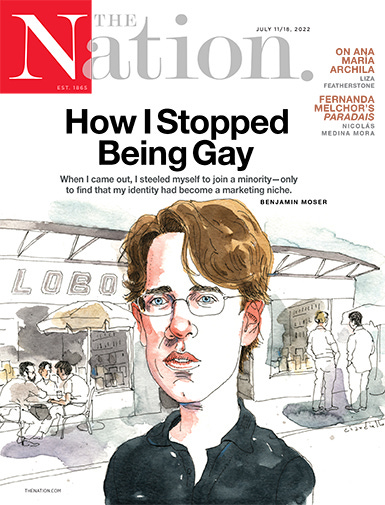
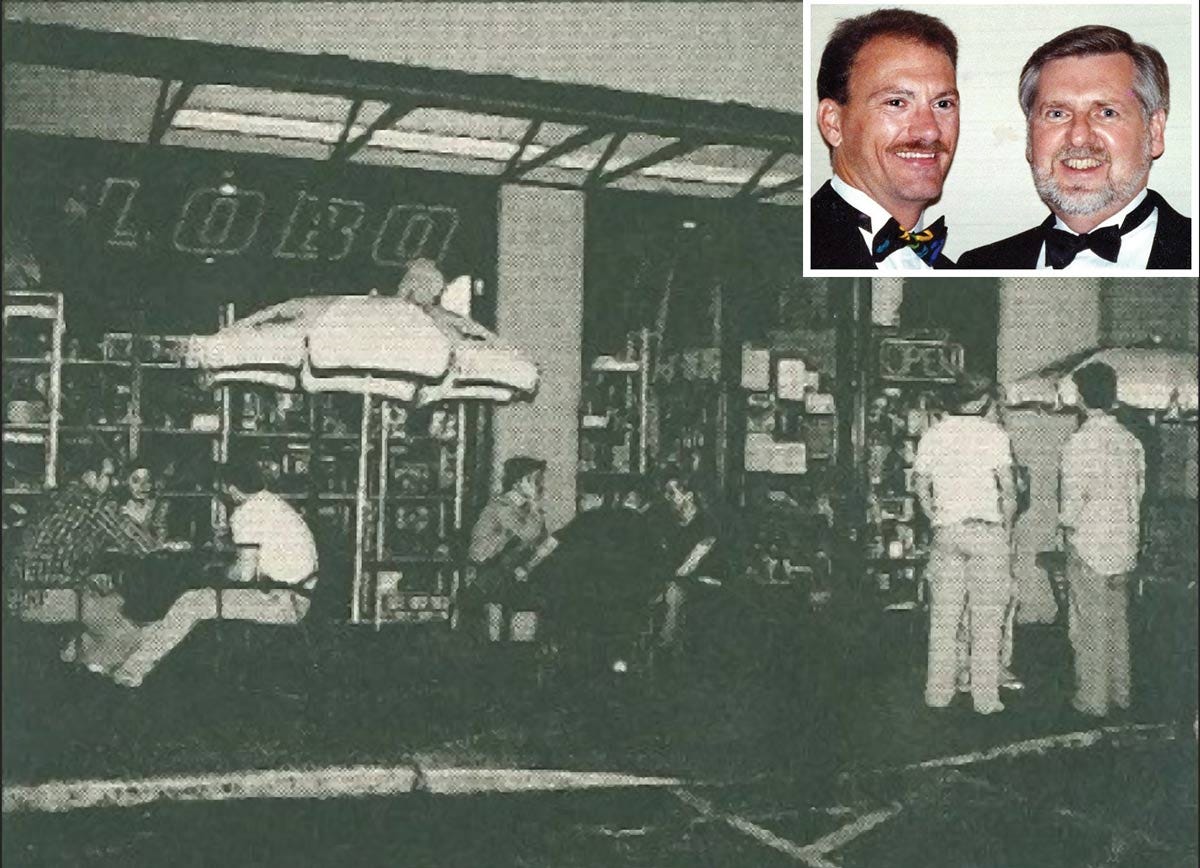
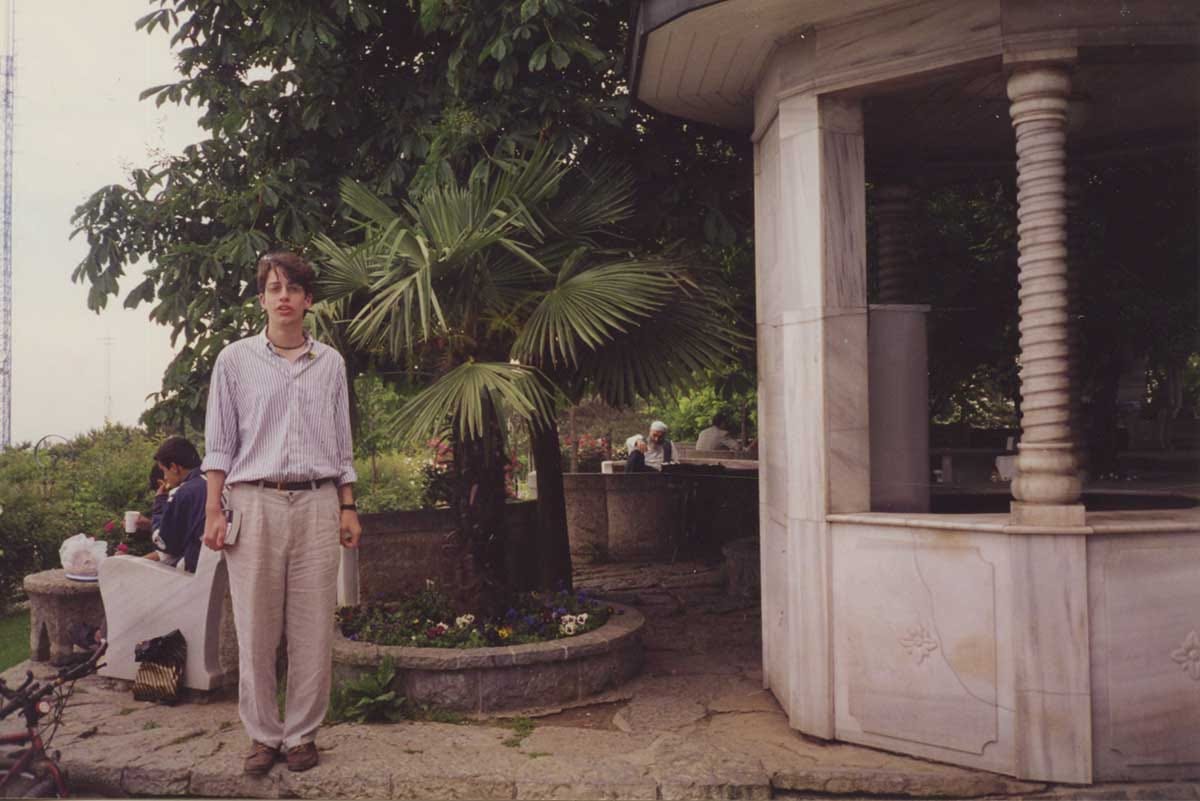
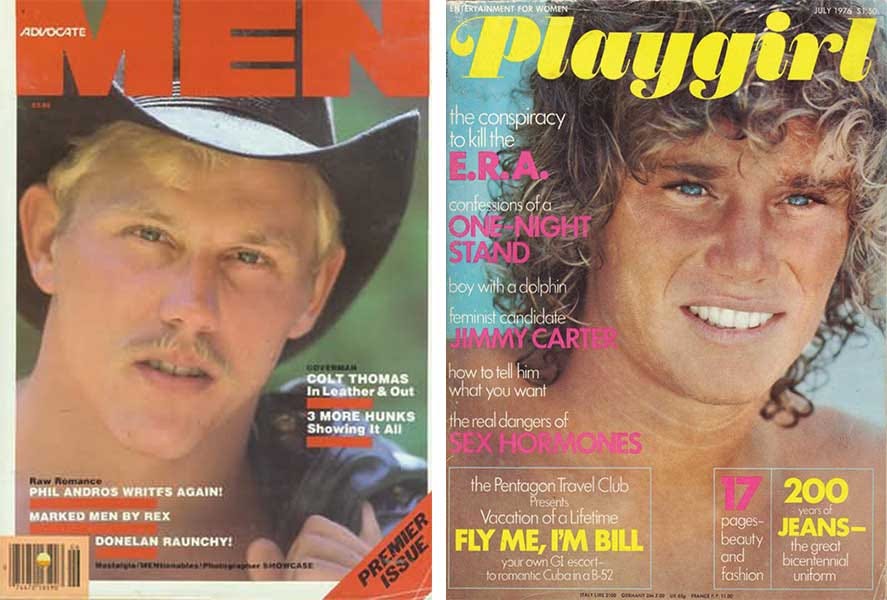
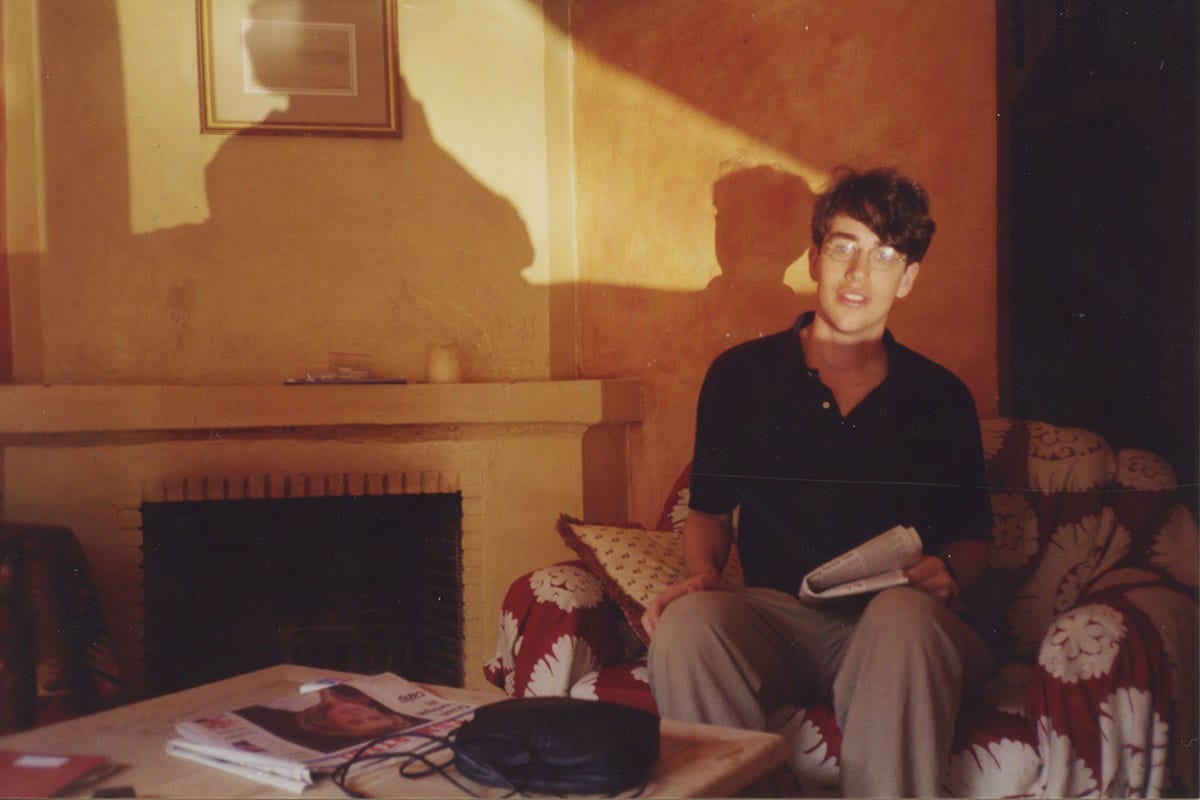

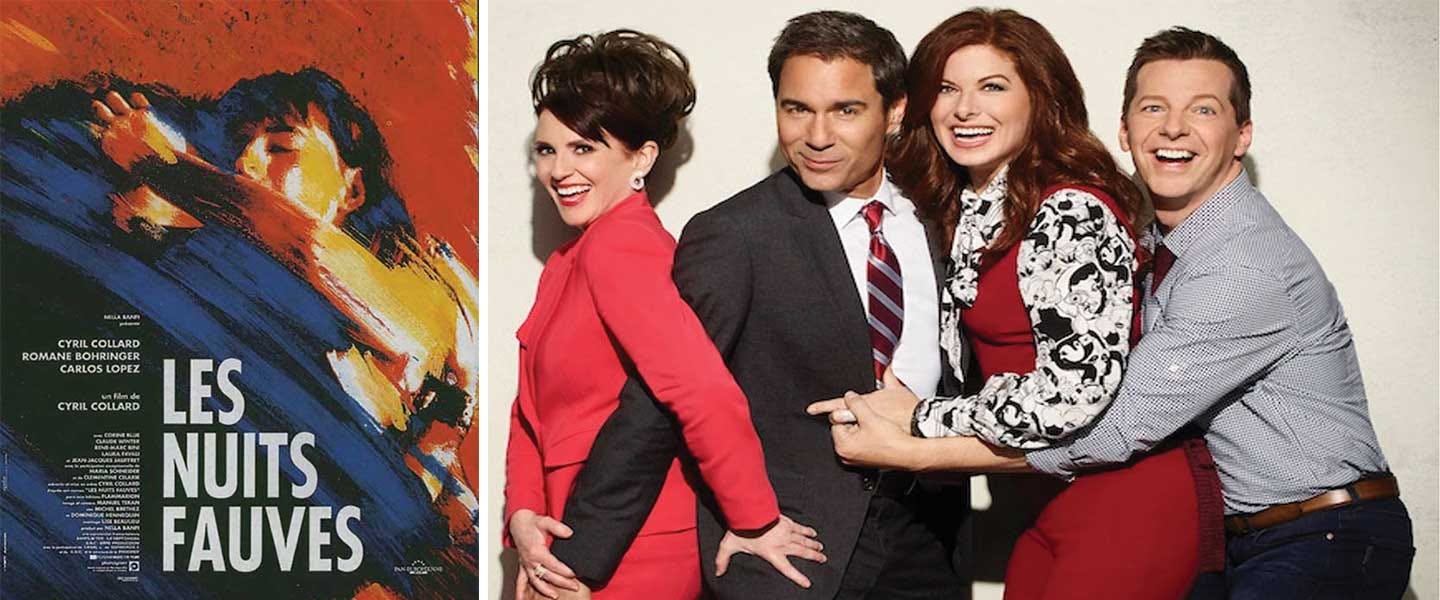
Integration, not assimilation. Thank you, Benjamin!
Such a beautiful weaving together of the personal and the societal.